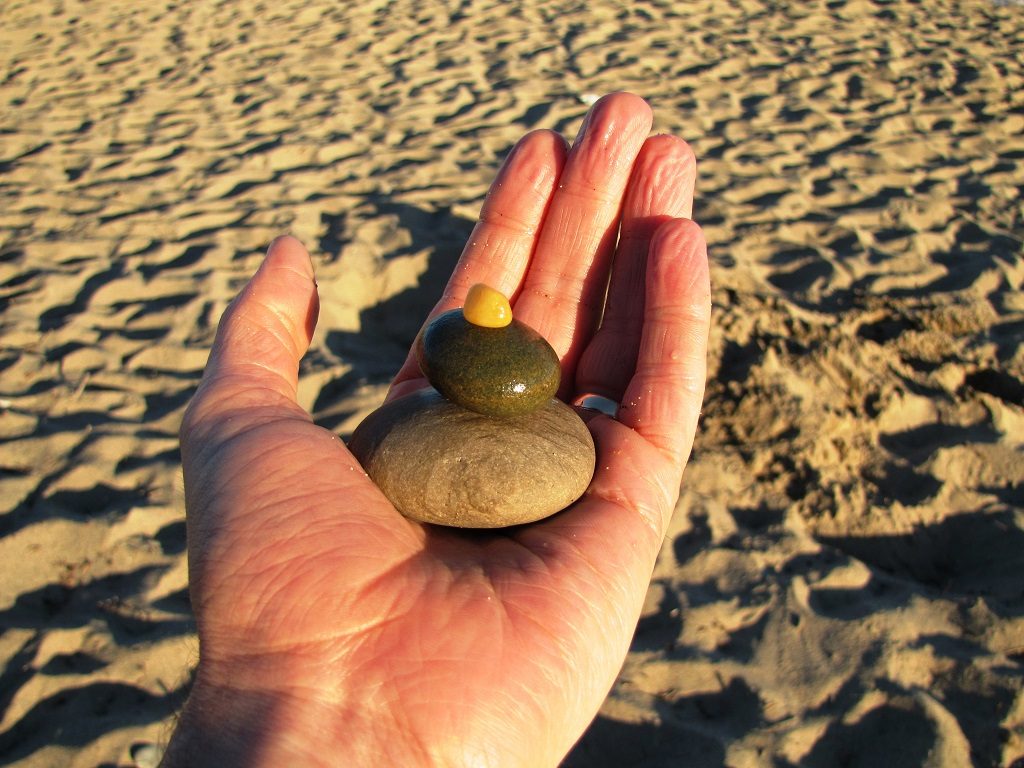Free Will and Failure
You are obliged by the most basic necessities of nature to make choices. You should therefore make your choices with the greatest degree of attention, the widest range of understanding, and the most serious appreciation for the extent to which your freedom to choose in any given circumstance is a gift that will come only once. But there is one more element of any choice that you must also remember in every case: You will probably fail to get most of what you choose, and the likelihood of failure grows in proportion to the breadth and significance of the choice at issue. Even if you seem to get much of what you intend at the initial moments of decision (the “success” stage), the ultimate effect of your choices will almost always be quite different from what you had presumed, and usually in ways that would seem to constitute a major disappointment, relative to the intentions of your original choice.
The reason for the near-inevitability of failure, even in the most carefully and intelligently deliberated of our choices, is quite simple: While we are indeed free to choose our course of action, and hence, as it were, to control the trajectory on which we send ourselves, we do not control the context of the choice, which is to say all the factors involved in the surrounding situation which exist more or less regardless of our chosen trajectory; nor do we have complete control even of the factors which might seem, on the surface, to be within our control. By this latter point, I mean that our understanding of all the contextual factors at play in any choice will inevitably be incomplete, and increasingly so in precisely the most important or profound choices, which normally entail the widest context, i.e., the most unwieldy set of contextual elements that we would need to grasp in order to comprehend, with any measure of reasonable assurance, the ultimate effects of this or that chosen trajectory.
This awareness of the likelihood of ultimate failure in most voluntary action, and especially in the highest realm of action, leads to a number of inferences.
First, reducing the likelihood of failure, particularly in those most fundamental choices which involve the most complex factors, would require a level of understanding of the entirety of one’s context — including and most importantly an understanding of the true best outcome or most natural intention given the overall circumstances — that would seem almost beyond the capacity of the human intellect. And yet such understanding is of the essence of good choice, or perhaps even of any choice at all, in the strictest sense of the term. Hence the imperative of the thinking life, which in turn, given the inherent limits of effective choice, must be understood as the true priority of the soul — not the projection of oneself onto a trajectory, but the unending and ever-deeper probing of the conditions of all possible trajectories and their defining contexts, i.e., the search for wisdom.
Second, enmeshing oneself in many and varied activities, i.e., making a lot of “big choices,” only increases the amount and predictability of worthless failure or futility. Hence, my general principles for living one’s practical life with self-respect and some small measure of control over one’s fate, which is to say with some real feeling of free will: Do very few things, do only those things which seem essentially valuable to your life and development, and do all of them with complete commitment and seriousness. As a corollary of these principles, I would add: Err on the side of not bothering to do something that might in fact be useful, rather than on the side of wasting time and effort on many things of little or no ultimate importance.
Third, accept the human condition with equanimity. Your choices, however well-intentioned and carefully deliberated, will result in failure more often than not, in the sense that they will not achieve the originally intended results, as those results were intended. As explained above, the chief reason for this predicament is that however well we discern and anticipate those aspects of the context that are within our personal control, there will always be many aspects beyond our control. Free will only means that you have the power to interact with your surroundings as you wish, not that the surroundings will bend to your wishes. Your responsibility then, to yourself above all, is to dedicate yourself to finding, and inclining yourself toward, the best possible outcomes for your soul’s well-being. What happens after that, which is to say how the broader context responds to your efforts, will be as it wishes, so to speak.
Acknowledging this last truth is liberating, in that, to the extent that the acknowledgment is fully entrenched in one’s reason and character (which it so rarely is), it mitigates both the fear of failure that devours resolve and shrinks courage, and the sense of “ill-fatedness” that engenders an excessively anxious, tragic, or nihilistic view of life. Practical life is a never-ending series of fluctuating contexts, in which we ourselves are a participating element, but rarely the decisive element. Our failures and disappointments themselves are agents of change in the context, and it is in this regard that they “open new doors,” as we say. Rather than lamenting, panicking, or raging over the previous context’s unsatisfying response to our will, we may take stock of the new set of circumstances in which we find ourselves — the new context which now encompasses the effects of our latest “failure” or “disappointment” — and begin the deliberative process once more, not with a view to winning the prize this time, but rather with a view to finding ever-more promising (perhaps even fruitful) avenues of failure. For the greatest life ends not in final victory, but in the most nobly and rationally defined diligence in attempt.
There is a famous maxim, often attributed spuriously to Winston Churchill, that “Success consists in going from failure to failure without loss of enthusiasm.” Perhaps it would be truer to the human condition, and specifically to a mature understanding of the limits of human will, to say that “Enthusiasm consists of going from failure to failure without loss of success.” That is, to live in earnest is in part to gradually overcome any emotional dependence on the hope of seeing our ultimate intentions achieved, insofar as such dependence reveals an immature understanding of the relationship between our will and our world, one which confines the soul within the limited horizon of failure as it is personally, immediately felt, as though our freedom required practical validation or justification. Freedom, rather, is the self-sufficient realm of interacting with reality to the extent of one’s capacities, without falling into the child’s dream of assuming that reality is our plaything, which is to say without defining the good life as the one in which one “gets what one wants.” Rather, the freest soul is the one which defines the good life as the life of actively, rigorously learning what one wants, which is never what one initially imagines it to be — a truth which actually proves the essential value of failure, to the extent our failures come to be seen for what they really are.



